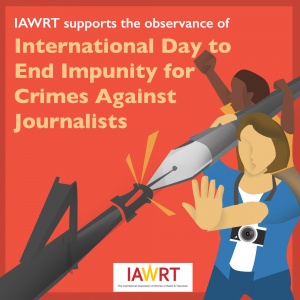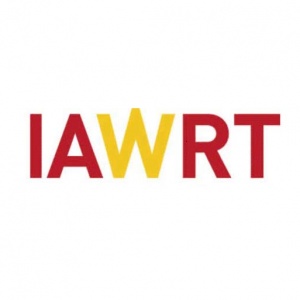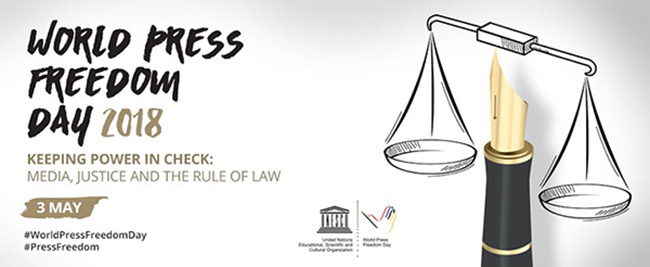IAWRT condemns all attacks on journalists and media workers
IAWRT joins the annual observance of the International Day to End Impunity for Crimes Against Journalists on November 2.
At least 324 journalists were murdered worldwide in the past decade and no perpetrators have been convicted in 85% of these cases – according to the Committee to Protect Journalists’ Global Impunity Index 2019 ‘Getting Away With Murder’. The CPJ says 10 out of the 19 journalists killed in 2019 alone were murder cases. In 2019 alone, 19 journalists have been killed, with 10 of them murdered.
Forty-five women journalists (out of 1,357 killed) were killed since 2009 and 27 of these cases remain unsolved.
In the CPJ index, four countries where IAWRT has country chapters rank in the top 14. Iraq ranked 3rd with 35 unsolved cases of journalist killings in a 10-year period. The Philippines ranked 5th with 40 unsolved cases, Afghanistan ranked 6th with 11 unsolved cases and India ranked 14 with 18 unsolved cases.
“IAWRT urges governments to bring perpetrators of crimes against journalists and media workers to justice, to curb impunity in their countries and to ensure that journalists can work freely and independently,” says Violet Gonda, President of IAWRT.
“Journalists continue to be killed for reporting the news and bringing information to the public, preventing effective education.”
“Societies suffer when journalists are attacked”
“Killings of journalists silence voices and impair the public’s need for information. The lack of justice served for these killings emboldens killers. Impunity leads to more killings. Killings daunt reporting and the search for truth. We must always call out and stand against killings of journalists and the culture of impunity that besiege countries around the globe.”
Gonda added: “IAWRT urges governments to bring perpetrators of crimes against journalists and media workers to justice, to curb impunity in their countries and to ensure that journalists, including women journalists, can work freely and independently.”
IAWRT remembers and pays tribute to women journalists killed on the International Day to End Impunity for Crimes Against Journalists.
- Viktoria Marinova, a Bulgarian journalist, was raped, bashed, and suffocated and her body was found on October 6, 2018. She was looking into alleged fraud involving EU funds linked to big businessmen and politicians and prompted speculation that she may have been targeted as ‘a warning’;
- Lyra McKee, a North Irish freelance journalist shot dead in Derry, Northern Ireland on April 18, 2019 while covering clashes in Creggan, a suburb of Londonderry (Derry). The ‘New IRA’, a dissident republican group, has admitted responsibility for her murder;
- Norma Sarabia Garduza, killed on June 11, 2019, just two months after she reported on a series of violent crimes in Huimanguillo, Mexico and five years after she reported to police that she had received threats from local police officers after she covered alleged involvement of police in kidnappings.
- Daphne Caruana Galizia, killed in a car bomb attack on Oct 16, 2017 for exposing corruption in Malta;
- Gauri Lankesh, shot dead in India on September 25, 2017 for criticizing the woman’s place in the caste system;
- Miroslava Breach, killed on March 23, 2017, an anti-corruption and human rights reporter for the Norte de Ciudad Juárez and La Jornada newspapers in Mexico;
- Kim Wall, a Swedish journalist who was sexually assaulted and killed while working on a submarine story in August 2017;
Many other women journalists also face legal persecution and other forms of harassments for their work.
The IAWRT Iraq-Kurdistan chapter has also appealed for support as the situation in their country has reached a very dangerous stage
The chapter head Awaz Salim says “a day does not pass without militias targeting young women, activists and media workers.”
Journalists in Kurdistan are also having their rights violated. An IAWRT Iraq-Kurdistan member was put on trial for the ‘misuse of electronic devices’ over a Facebook post.
In the Philippines, journalist Anne Krueger was unlawfully arrested with 56 others in simultaneous raids on various offices in Bacolod City in the Negros island in the central Philippines on October 31st. A live video broadcast on Facebook by Krueger minutes before her arrest reportedly exposes ‘evidence being planted’ by the authorities who conducted the raid. The Philippines military publicly named her as a ‘communist leader in a propaganda work’.
Women have been drawn to the frontline of the attacks.
The Reporters San Frontières Press Freedom Awards in 2019 went to three women journalists, which is an indication of women increasingly risking their lives and security in the name of media freedom.
Women journalists continue to struggle to keep women voices and stories published, aired and broadcast up to this day.
Killings of journalists silence voices and impair the public’s need for information. The lack of justice served for these killings emboldens killers. Impunity leads to more killings. Killings chill reporting and the search for truth. We must always call out and stand against killings of journalists and the culture of impunity that besiege countries around the globe.



 Journalists around the world still face serious challenges and are victims of murder, detention, torture, disappearances, extrajudicial killings along with online attacks and sexual harassment which are overwhelmingly directed at female journalists.
Journalists around the world still face serious challenges and are victims of murder, detention, torture, disappearances, extrajudicial killings along with online attacks and sexual harassment which are overwhelmingly directed at female journalists.





